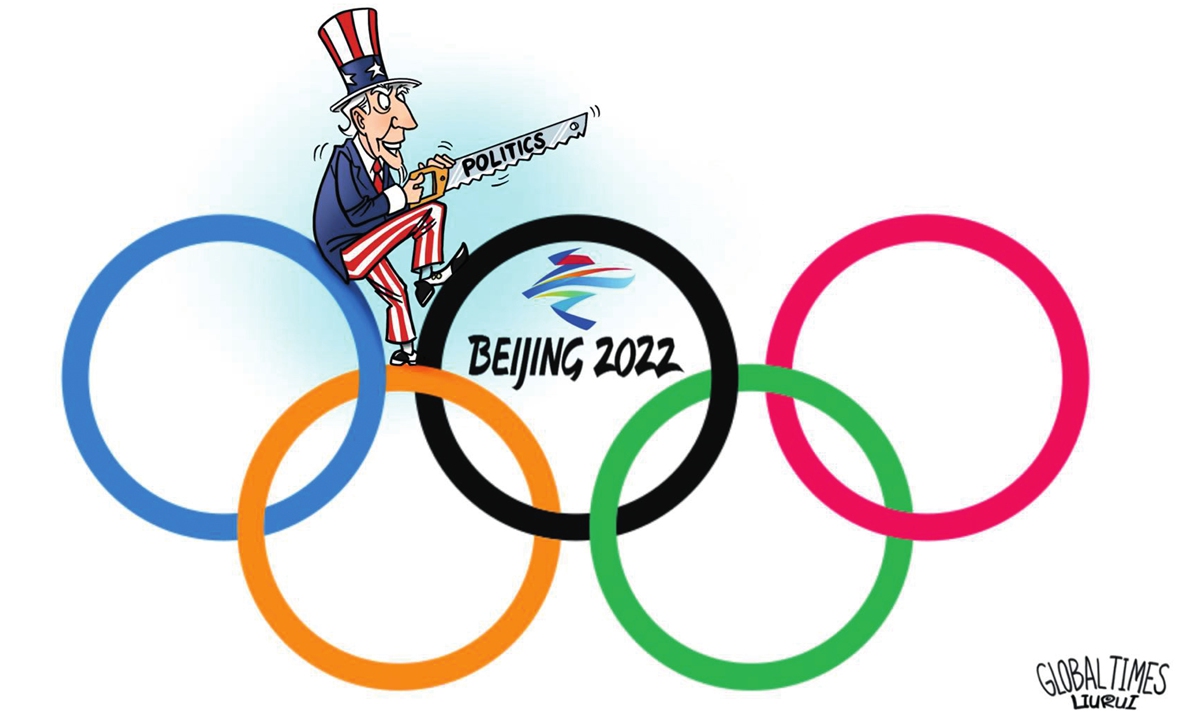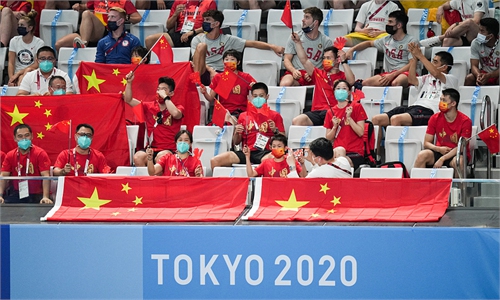
Illustration: Liu Rui/GT
After the curtain fell on Tokyo Olympic Games on Sunday, all eyes, especially those from the West, are now on the 2022 Beijing Winter Olympics, creating very unfriendly tones. Take The Washington Post, which published an article written by columnist Sally Jenkins on Monday, entitled, "It's unforgivable to hold the Olympics in Beijing." Worse, the voices did not emerge from just media outlets.Russia's Foreign Ministry spokeswoman Maria Zakharova said on Monday that the US has initiated the "largest anti-Chinese anti-sports campaign" ahead of the 2022 Beijing Winter Games, stressing that the rhetoric has not been coming from media reports alone, but rather from elected and public officials from all branches of government, TASS reported on Monday.
Numerous examples can be listed here. For instance, a group of lawmakers, joined by Senator Marco Rubio, called on the International Olympic Committee in July to postpone the 2022 Olympics and relocate the event for the claim that China "is committing genocide and crimes against humanity." US House Speaker Nancy Pelosi proposed in May the diplomatic boycott of the Beijing Winter Olympics. Republican Senator Mitt Romney in March urged an economic and diplomatic boycott of the 2022 Games.
Yet one thing should be made clear, the "boycott" these politicians are talking about is diplomatic boycott, which discourages their leaders to attend the games.
So far, no country has made official statements to forbid sending their delegations to the 2022 Winter Games.
Will US government really make the decision to officially boycott the Winter Games scheduled for Beijing next February? It is believed not. One of the most crucial reasons the US cannot do so is clear: It will hurt American athletes bad, who have been waiting for that day for too long. This is not the Cold War time when the US refused to go to Moscow in 1980 and the Soviet Union boycotted the 1984 Olympics in Los Angeles.
Still, American politicians keep on clamoring about the issue, hoping to stir up troubles, because they are too anxious and panicked about the rise of China. They are feeling uncomfortable witnessing China could develop so smoothly and become so strong. They cannot help but launch political challenges against Beijing whenever the latter does something big.
This has become a routine.
Take the 2008 Olympics. China was confronting greater pressure and challenges from the West than it is today. Whereas China and the US had made some progress, former US president George W. Bush still came to Beijing that summer for four days.
Certain US politicians are merely making a stunt for nothing. Yet one thing is certain: they are politicizing sports. During the process, Russia and Russian athletes have become victims.
In 2014, the US government excluded all senior-level elected officials from the US delegation to attend the Sochi Winter Olympics for so-called human rights issues. Moreover, Russia has been banned from international sporting competitions for four years since 2019. This is to a large extent due to the politicization of sports.
To oppose the politicization of sports games, China and Russia should join hands. The current China-Russia relationship is blossoming. They could become the driving force to safeguard the apolitical color of the Olympic Games.
The article is compiled by Global Times reporter based on an interview with Lü Xiang, a research fellow at the Chinese Academy of Social Sciences in Beijing. opinion@globaltimes.com.cn


